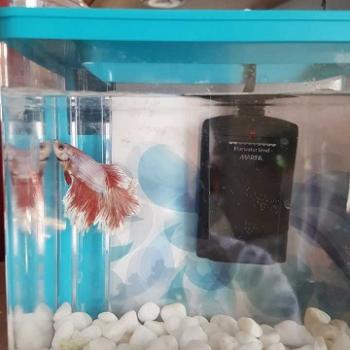A bit over year ago, as I prepared for the depression sure to occur upon the end of “Breaking Bad,” I ruminated on just how great television is these days–except for zombies. I hate zombies. But they get me to thinking . . .
![Breaking-Bad-1[1]](http://wp.production.patheos.com/blogs/freelancechristianity/files/2013/09/breaking-bad-11.jpg?w=150) We are living in the golden age of television. I grew up on sitcoms, westerns, and sports—when we were allowed to watch television, that is—subjected to a three network, pre-cable fare that made the term “idiot box” entirely appropriate. That has all changed. Without ever having to check the basic networks other than for news and sports, viewers today are offered options rivaling anything on the big screen in both production value and quality of acting. Thanks to the wonders of on demand viewing, I can keep up with “Breaking Bad,” “Mad Men,”
We are living in the golden age of television. I grew up on sitcoms, westerns, and sports—when we were allowed to watch television, that is—subjected to a three network, pre-cable fare that made the term “idiot box” entirely appropriate. That has all changed. Without ever having to check the basic networks other than for news and sports, viewers today are offered options rivaling anything on the big screen in both production value and quality of acting. Thanks to the wonders of on demand viewing, I can keep up with “Breaking Bad,” “Mad Men,” “Sons of Anarchy,” “The Newsroom,” or something from across the pond like “Downton Abbey” or “Broadchurch” with no scheduling conflicts while fast-forwarding through AMC or FX commercials,
“Sons of Anarchy,” “The Newsroom,” or something from across the pond like “Downton Abbey” or “Broadchurch” with no scheduling conflicts while fast-forwarding through AMC or FX commercials, ![Downton_Abbey[1]](https://wp-media.patheos.com/blogs/sites/766/2013/09/downton_abbey1.jpg?w=150) descending just a notch or two lower to “Boardwalk Empire” or “Game of Thrones” when I feel like slumming it.
descending just a notch or two lower to “Boardwalk Empire” or “Game of Thrones” when I feel like slumming it.
When Jeanne and I discover a series that’s been going on for a while, we can use Netflix to catch up on several seasons in short order, swept up in a viewing frenzy that is limited only by our inability to stay awake into the wee hours of the morning. This most recently happened when we discovered the great BBC series ![Inspector-Lewis[1]](http://wp.production.patheos.com/blogs/freelancechristianity/files/2013/09/inspector-lewis1.jpg?w=150) “Inspector Lewis” which eventually made its way to PBS’s “Masterpiece Theater,” watching six seasons worth in little over a month, and then descending into temporary television depression when realizing that we would no longer be swept up into the underbelly of Oxford with DCI Lewis and DC Hathaway because the sixth season was the final one. I was sucked similarly into “Breaking Bad” a couple of springs ago when my oldest son kept pestering me into watching. “You’ve got to watch ‘Breaking Bad,’ Dad!” Caleb insisted. “The main character Walt reminds me of you!” After using my Amazon Prime account to watch the first two episodes on my computer, I called him back.
“Inspector Lewis” which eventually made its way to PBS’s “Masterpiece Theater,” watching six seasons worth in little over a month, and then descending into temporary television depression when realizing that we would no longer be swept up into the underbelly of Oxford with DCI Lewis and DC Hathaway because the sixth season was the final one. I was sucked similarly into “Breaking Bad” a couple of springs ago when my oldest son kept pestering me into watching. “You’ve got to watch ‘Breaking Bad,’ Dad!” Caleb insisted. “The main character Walt reminds me of you!” After using my Amazon Prime account to watch the first two episodes on my computer, I called him back. ![bryan-cranston1[1]](https://wp-media.patheos.com/blogs/sites/766/2013/09/bryan-cranston11.jpg?w=150) “The only reason Walt reminds you of me is he’s a teacher and so am I! You don’t see me making a bit of extra money on the side by cooking meth with a former philosophy student, do you??” But I was hooked and literally watched five seasons of “Breaking Bad” in two weeks of extended evening viewing on my computer sitting in bed with a dachshund on either side while Jeanne was on the road. I am now preparing for an extended period of withdrawal from the adventures of Walt, Jesse, Skylar, Marie, Hank and Walt Jr. once the current final season concludes in a few weeks. I’m not over the withdrawal yet.
“The only reason Walt reminds you of me is he’s a teacher and so am I! You don’t see me making a bit of extra money on the side by cooking meth with a former philosophy student, do you??” But I was hooked and literally watched five seasons of “Breaking Bad” in two weeks of extended evening viewing on my computer sitting in bed with a dachshund on either side while Jeanne was on the road. I am now preparing for an extended period of withdrawal from the adventures of Walt, Jesse, Skylar, Marie, Hank and Walt Jr. once the current final season concludes in a few weeks. I’m not over the withdrawal yet.
One of the side benefits of the current fabulous fare on television is how it regularly works its way into conversations with my colleagues on campus, conversations that in the past might have been focused on the intricacies of Descartes’ cogito or Hegel’s Logic rather than the unexpected bloodbath at the conclusion of season three of “Game of Thrones.” ![]() Often these conversations turn into a confessional of just how much time each of us spends watching TV, as well as (usually) good-natured debates about which series is the best. “What do you mean you never watched ‘The Wire’??” a fellow philosophy professor sputtered as we were having a beer or two the other afternoon. “That’s the greatest television series ever!” he claimed, implying that I would forever be stuck in the television-viewing minor leagues until I graduated to the big show of “The Wire.” Things calmed down shortly after when we agreed that regardless of the current “Greatest Series Ever” title holder, it was soon to be replaced by “Breaking Bad” when its final season ends. Following my colleague’s advice, I watched one episode of “The Wire” on my tablet per visit to the gym this past summer. Great show.
Often these conversations turn into a confessional of just how much time each of us spends watching TV, as well as (usually) good-natured debates about which series is the best. “What do you mean you never watched ‘The Wire’??” a fellow philosophy professor sputtered as we were having a beer or two the other afternoon. “That’s the greatest television series ever!” he claimed, implying that I would forever be stuck in the television-viewing minor leagues until I graduated to the big show of “The Wire.” Things calmed down shortly after when we agreed that regardless of the current “Greatest Series Ever” title holder, it was soon to be replaced by “Breaking Bad” when its final season ends. Following my colleague’s advice, I watched one episode of “The Wire” on my tablet per visit to the gym this past summer. Great show.
![banner_stargate_studios_the_walking_dead_952px[1]](https://wp-media.patheos.com/blogs/sites/766/2013/09/banner_stargate_studios_the_walking_dead_952px1.jpg?w=150) There is one show that has been touted and recommended to me by at least a dozen people as the best out there, a show that I guarantee I will never watch. “Have you ever watched ‘The Walking Dead’?” I frequently am asked. “Man, you’ve got to see that! Acting, storyline, suspense—there’s nothing better!” Let’s suppose, just for argument’s sake, that “The Walking Dead” is the greatest show ever to grace the small screen. I still won’t be watching it. I don’t like zombies.
There is one show that has been touted and recommended to me by at least a dozen people as the best out there, a show that I guarantee I will never watch. “Have you ever watched ‘The Walking Dead’?” I frequently am asked. “Man, you’ve got to see that! Acting, storyline, suspense—there’s nothing better!” Let’s suppose, just for argument’s sake, that “The Walking Dead” is the greatest show ever to grace the small screen. I still won’t be watching it. I don’t like zombies.
As a philosophy professor I should be both familiar and comfortable with zombies, since in philosophy of mind the analysis of zombies has been somewhat of a cottage industry for at least a couple of decades. Really. Zombies in philosophy are imaginary creatures used to illuminate problems about consciousness and its relation to the physical world. ![issue96[1]](https://wp-media.patheos.com/blogs/sites/766/2013/09/issue961.jpg?w=225) Unlike those in films or witchcraft, philosophy zombies are exactly like us in all physical respects but without conscious experiences: by definition there is ‘nothing it is like’ to be a zombie. Yet zombies behave just like us, and some even spend a lot of time discussing consciousness. Lest the non-academics among you take this philosophical zombie obsession as evidence that the ivory tower needs to be torn down or blown up, it gets worse. I have been at large philosophy conferences where more than half of the papers presented were focused on the philosophical analysis of zombies. I did not participate—zombies creep me out.
Unlike those in films or witchcraft, philosophy zombies are exactly like us in all physical respects but without conscious experiences: by definition there is ‘nothing it is like’ to be a zombie. Yet zombies behave just like us, and some even spend a lot of time discussing consciousness. Lest the non-academics among you take this philosophical zombie obsession as evidence that the ivory tower needs to be torn down or blown up, it gets worse. I have been at large philosophy conferences where more than half of the papers presented were focused on the philosophical analysis of zombies. I did not participate—zombies creep me out.
I really do not get the general infatuation, academic or otherwise, that our culture has with zombies. A few weeks ago, as Jeanne and I were riding with our friend Michael and his eleven-year old son Sam to the grocery store during our annual Florida trek, we rode past a sign on the side of the road advertising a “5K Zombie Run” in downtown Tampa a few days later. I’m not sure how zombies could run five kilometers without falling apart, but my question was more general. “What the hell is the big obsession that people have with zombies??” I wanted to know. In short order Sam started to talk about zombies in a stream-of-consciousness fashion, zombies in books, in movies, in video games. “Really,” he concluded, “all a zombie is is someone who was dead and now isn’t any more. Hmm–Jesus was a zombie!”
![zombie-zoom[1]](https://wp-media.patheos.com/blogs/sites/766/2013/09/zombie-zoom11.jpg?w=296) I thought Sam’s “Zombie Jesus” connection was original—boy was I wrong. Just Google “Zombie Jesus” and see what happens, but don’t do it until you have taken your gross-out pills and fortified yourself with a main-line injection of irreverence and stupidity tolerance. The image to the left is the most tasteful one I could find. Zombie Jesus day (Easter, in other words), Zombie Jesus Facebook pages, a short film called “The Passion of Zombie Jesus” loaded by someone called “championofhell” on YouTube and described as “the most sacrilegious film in human history” (I didn’t watch it)—you get the point. I find this laughably weak if intended to be a critique of Christian belief; certain believers might be outraged, but something tells me that the divine does not fall off its throne or lose any sleep over such things. But there it is again—the zombie meme has a viral life of its own, and I just don’t get it.
I thought Sam’s “Zombie Jesus” connection was original—boy was I wrong. Just Google “Zombie Jesus” and see what happens, but don’t do it until you have taken your gross-out pills and fortified yourself with a main-line injection of irreverence and stupidity tolerance. The image to the left is the most tasteful one I could find. Zombie Jesus day (Easter, in other words), Zombie Jesus Facebook pages, a short film called “The Passion of Zombie Jesus” loaded by someone called “championofhell” on YouTube and described as “the most sacrilegious film in human history” (I didn’t watch it)—you get the point. I find this laughably weak if intended to be a critique of Christian belief; certain believers might be outraged, but something tells me that the divine does not fall off its throne or lose any sleep over such things. But there it is again—the zombie meme has a viral life of its own, and I just don’t get it.
Unless, of course . . . unless the zombie thing is just another way in which the human desire to believe that there is more to our existence than just our short-term physical presence on earth pops up. Beneath the crudity and lack of imagination of the zombie obsession lies that deep human need to believe that this is not all there is. ![The-Walking-Dead-S3-Mid-season-1[1]](https://wp-media.patheos.com/blogs/sites/766/2013/09/the-walking-dead-s3-mid-season-11.jpg?w=150) It says something about the limitations of the human imagination that a bunch of almost-dead, decaying corpses staggering around and eating the flesh off fully alive humans is the best “life after death” scenario we can come up with, especially since a much more exhilarating and inspiring story is available.
It says something about the limitations of the human imagination that a bunch of almost-dead, decaying corpses staggering around and eating the flesh off fully alive humans is the best “life after death” scenario we can come up with, especially since a much more exhilarating and inspiring story is available.
“He who believes in me will never die.” That’s a pretty shocking and “out there” promise, but the prospect of taking it seriously enough to try to figure out what it means and how it might transform a life is far more attractive than wasting time with the undead. Sam’s attraction to zombies is understandable—things that were once dead do not generally come back to life, even in a half-baked, decaying form. But a full-fledged resurrection from the dead, new life awakening in a soul left for dead? “Whoever drinks the water I give them will never thirst . . . It will become in them a spring of water welling up to eternal life.” Someone should make a television show about that!


![lilium_lily_uplandin_20090615_lah_005[1]](https://wp-media.patheos.com/blogs/sites/766/2013/09/lilium_lily_uplandin_20090615_lah_0051.jpg?w=300)














